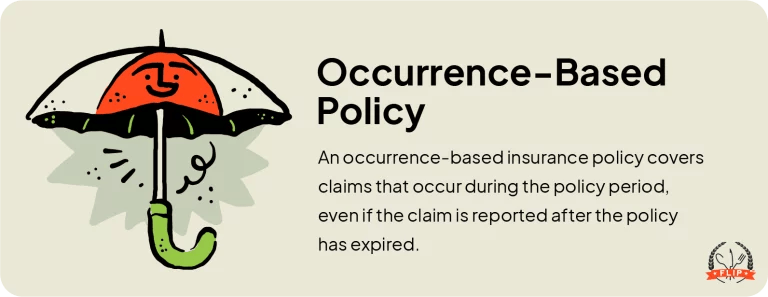Occurrence-Based Policy
What Is an Occurrence-Based Policy?
An occurrence-based insurance policy covers claims that occur during the policy period, even if the claim is reported after the policy has expired.
Occurrence-based insurance is designed to protect you from claims relating to incidents that cause damage years after they occur.

Occurrence-Based vs. Claims-Made Policy
The difference between an occurrence and a claims-made policy is how and when the claim occurs and when you report it to your insurance company.
Occurrence-Based Policy
- The claim needs to occur during the policy period (typically 12 months).
- The claim does not need to be reported during the policy period, but it does need to have occurred during the policy period.
Claims-Made Policy
- The claim needs to occur during the coverage period, which can differ from the policy period.
- The claim must be reported during the coverage period or the extended reporting period. If it is not reported during these periods, the claim may not be covered.
The occurrence policy has less strict claim reporting requirements than the claims-made policy, as you can still get coverage for a claim you don’t report until after your policy expires.
Does FLIP Offer an Occurrence-Based Policy?
Yes! FLIP’s general liability coverage is an occurrence policy, meaning you can report a claim that happened during the policy period and receive coverage for it even if your policy has expired.
With FLIP, you can get a general liability policy for as low as $25.92 a month. Learn more about which industries we cover and how FLIP can protect your food or beverage business today!
Read More
- See also: Claim
- See also: Claims-Made Policy
- See also: Policy Period

